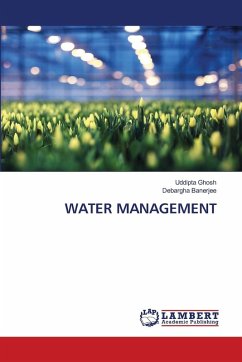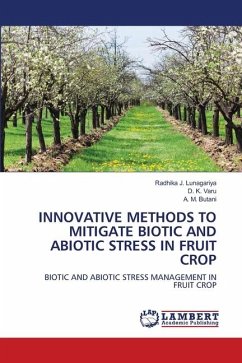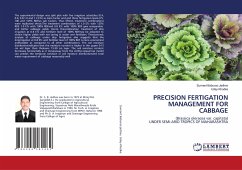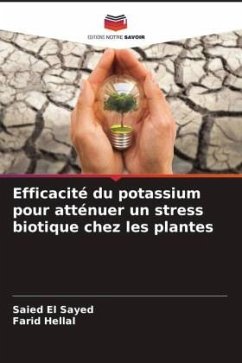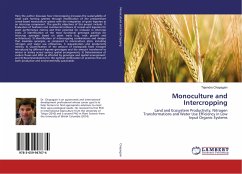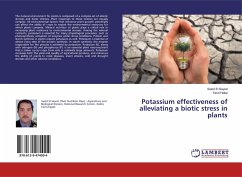
Potassium effectiveness of alleviating a biotic stress in plants
Versandkostenfrei!
Versandfertig in 6-10 Tagen
27,99 €
inkl. MwSt.

PAYBACK Punkte
14 °P sammeln!
The natural environment for plants is composed of a complex set of abiotic stresses and biotic stresses. Plant responses to these stresses are equally complex. All environmental factors that influence plant growth potentially can affect the ability of crops to exploit the environmental resources for which plants compete. Mineral nutrition of plants plays a critical role in increasing plant resistance to environmental stresses. Among the mineral nutrients, potassium is essential for many physiological processes, such as photosynthesis, activation of enzymes under stress conditions. Protein and ...
The natural environment for plants is composed of a complex set of abiotic stresses and biotic stresses. Plant responses to these stresses are equally complex. All environmental factors that influence plant growth potentially can affect the ability of crops to exploit the environmental resources for which plants compete. Mineral nutrition of plants plays a critical role in increasing plant resistance to environmental stresses. Among the mineral nutrients, potassium is essential for many physiological processes, such as photosynthesis, activation of enzymes under stress conditions. Protein and starch synthesis in plants require potassium as well. Potassium is essential at almost every step of the protein synthesis. In starch synthesis, the enzyme responsible for the process is activated by potassium. Potassium (K), along with nitrogen (N) and phosphorus (P), is an essential plant macronutrient that is taken up by crops from soils in relatively large amounts. Potassium increases both the yield and quality of agricultural produce, and enhances the ability of plants to resist diseases, insect attacks, cold and drought stresses and other adverse conditions.



